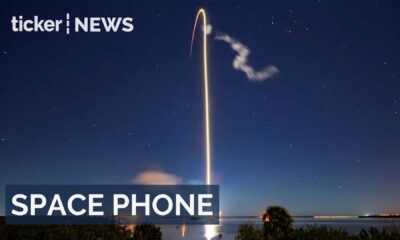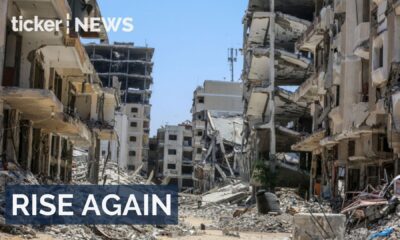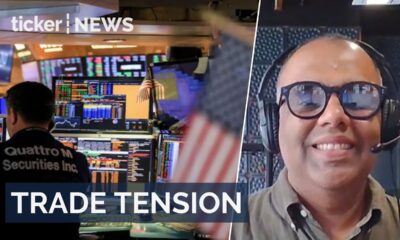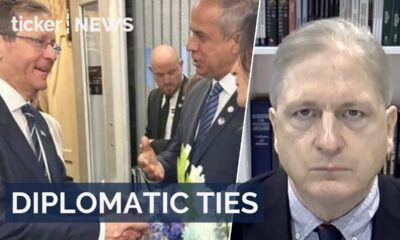Frank Bongiorno, Australian National University
Tony Abbott was once unelectable. So were Donald Trump and Boris Johnson.
And so was Peter Dutton, not so long ago. But opinion polls over much of 2024 and early 2025 indicated otherwise, and a nightly assault of pre-election political advertising – as my wife and I watched reruns of Law & Order: Criminal Intent – suggested that the Liberals had done their research and needed to humanise their man.
Devotees of Detectives Goren and Eames in that venerable program were able to enjoy briefly reviewing Detective Senior Constable Dutton’s time as a Queensland cop, as well as his splendid business career (which has received some closer scrutiny since) and his more recent meeting and greeting of ordinary Australians as a likeable everyman and all-round good guy.
The ad sometimes played twice in a particular break: the saturation coverage suggested that the Liberals had done rather well with donors. Unfortunately for Dutton, we later gained a deeper insight into the very high priority he attaches to rattling the can for the Liberal Party. Dutton’s decision to attend a fundraiser in Sydney while a cyclone was descending on Queensland did him immense damage, recalling his predecessor’s “I don’t hold a hose, mate” response to the Black Summer bushfires of 2020-21.
If historical precedent is any guide, Dutton’s task should be somewhere between formidable and impossible. When Australians elect their national governments, they can normally assume they are doing so for at least two terms. The last one-termer was the Labor government of James Scullin, elected in October 1929 and sent into oblivion via an election held a few days before Christmas in 1931.
Scullin was a victim of the century’s greatest international economic crisis; governments everywhere faltered or disintegrated under similar pressures. The economic challenges faced by the present Labor government have been more modest. But will it suffer a similar fate to Scullin’s Depression-era administration?
Normally, the rarity of one-termers might have provided Anthony Albanese with a measure of reassurance. But we live in an era where historical precedent seems to count for little.
That was clear enough even at the 2022 election. It was unprecedented in several respects. There was nothing resembling the atmosphere of excitement of 1972, 1983 and 2007 – or, for that matter, 1929 – which had brought Labor governments to power from opposition and awarded them solid or large majorities.
Labor’s majority on the floor of the House of Representatives following the 2022 election was piddling – a mere three seats, and just two after the election of a speaker. Its primary vote was about 32%. It won just five of the 30 available seats in the third most populous Australian state, Queensland.
There had never been a Labor victory like this one. Its exceptionalism haunts Labor’s efforts to gain re-election in 2025.
Labor won in 2022 rather like many state Labor oppositions have won in recent decades. The margin was narrow. The unpopularity of a government, and its leader, was there to be exploited. Again and again, state Labor oppositions have fallen over the line at an initial election, sometimes able only to form minority government: Bob Carr, Mike Rann, Peter Beattie, Steve Bracks and Annastacia Palaszczuk were all examples.
Voters seemed at best grudging in their support, but enough were willing to give Labor a go and then look over the results when a new election came round a few years later. In each case, governments were able to consolidate, sometimes winning landslide victories by establishing their credentials, exploiting incumbency, and building new constituencies.
There were signs Albanese might do the same after May 2022. His slim three-seat majority became a five-seat advantage when Labor’s Mary Doyle won the Aston byelection on April 1 2023 – a seat deep in the traditional Liberal heartland. As late as the Dunkley byelection of March 2 2024, also in Melbourne, the base of electoral support that had seen Albanese into office almost two years before looked to be more or less intact.
Part of the problem for the Coalition seemed to lie with Dutton himself. Would Australians vote for him? Or to put it more precisely: would the kinds of voters in the mainland capital cities who had turned so sharply against Scott Morrison in 2022 shift their votes to a figure as conservative and as bleak as Dutton?
That bleakness always struck me as being a bigger problem than the conservatism. Australians routinely elect conservative prime ministers. They elected Malcolm Fraser when they thought he was a conservative (as indeed he was). Then they elected him twice more. They elected John Howard, who had proudly called himself the Liberal Party’s most conservative leader ever. Then they elected him another three times. They elected Abbott, even if buyer’s remorse quickly followed. They elected Morrison when the Coalition had seemed dead in the water.
But leaders such as Howard and Morrison were much more optimistic than Dutton. They both seemed to think Australia was a pretty good place full of pretty good people and that all things being equal, the future was likely to be pretty good too while there were pretty good blokes in charge (but, of course, it would be much better under a Coalition government, which had the best blokes).
Abbott, to be sure, was more pessimistic – his description of the Syrian conflict as a struggle between “baddies” and “baddies”, and his references to “death cults”, said more about his habit of reducing complexity to melodrama than it did about that Middle East. Yet Abbott’s outlook, at least as expressed publicly while in office, was nowhere near as dismal as Dutton’s.
For Dutton, the enemy is close to home, menacing us in the dark. His bleakness is in a league of its own.
Lech Blaine’s portrait in his Quarterly Essay Bad Cop was convincing: Dutton was a man formed and perhaps damaged by his experience as a policeman, and a political hardman in the habit of painting whole groups of people – commonly politically vulnerable – as a threat to society. Dutton evokes a vision of good people besieged by bad, of the decent and law-abiding as in constant danger of being swamped by the immoral and the criminal – or possibly mugged on their way home from a Melbourne restaurant.
As 2024 unfolded, no one doubted there was sufficient dissatisfaction with Labor building, especially in many outer Australian suburbs, to do the government serious damage at an election. Persistently high interest rates had increased the cost of a mortgage. Inflation had moderated, but living standards had taken a beating. The chattering classes started talking of the inevitability of minority government, but they usually meant minority Labor government. Then they started talking about minority Coalition government, as the polls turned nastier for Labor.
Labor spirits have revived in recent weeks after Dutton’s missteps over Cyclone Alfred, a comfortable victory in the Western Australian election, and opinion polling that shows the ALP ahead on a two-party preferred count. Still, uncertainty abounds.
Albanese often campaigned poorly last time: will he again falter? Dutton, meanwhile, is untested as leader in an election campaign, has little policy on the table, and has a habit of going missing when there are hard questions to be answered.
For me, the key to this election is whether there is a sufficient number of voters, concentrated in the right places, who share enough of Dutton’s pessimism about their own circumstances and, to a lesser extent, about the general state of the country. If, indeed, there is enough congruence between Dutton’s bleakness and theirs, Australia may well have a new government and a new prime minister by winter.
But Dutton’s blessed run might well have now come to an end. Inflation has moderated, the Reserve Bank has made a cut to interest rates, and a sense of scepticism seems to have settled in about Dutton among voters taking a serious look at him as a potential prime minister a few weeks ago.
He now looks more like Old Mother Hubbard with a bare policy cupboard, desperately seeking to shore up the hard right vote against depredations from Pauline Hanson and Clive Palmer, than Australia’s answer to Donald Trump.
Frank Bongiorno, Professor of History, ANU College of Arts and Social Sciences, Australian National University
This article is republished from The Conversation under a Creative Commons license. Read the original article.























